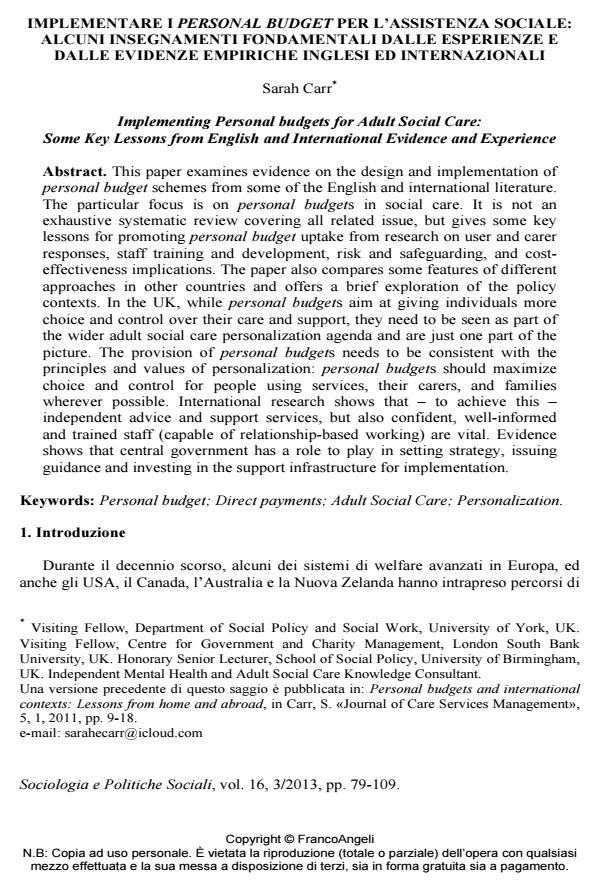Implementing Personal budgets for Adult Social Care: Some Key Lessons from English and International Evidence and Experience
Journal title SOCIOLOGIA E POLITICHE SOCIALI
Author/s Sarah Carr
Publishing Year 2014 Issue 2013/3
Language Italian Pages 31 P. 79-109 File size 748 KB
DOI 10.3280/SP2013-003004
DOI is like a bar code for intellectual property: to have more infomation
click here
Below, you can see the article first page
If you want to buy this article in PDF format, you can do it, following the instructions to buy download credits

FrancoAngeli is member of Publishers International Linking Association, Inc (PILA), a not-for-profit association which run the CrossRef service enabling links to and from online scholarly content.
This paper examines evidence on the design and implementation of personal budget schemes from some of the English and international literature. The particular focus is on personal budgets in social care. It is not an exhaustive systematic review covering all related issue, but gives some key lessons for promoting personal budget uptake from research on user and carer responses, staff training and development, risk and safeguarding, and costeffectiveness implications. The paper also compares some features of different approaches in other countries and offers a brief exploration of the policy contexts. In the UK, while personal budgets aim at giving individuals more choice and control over their care and support, they need to be seen as part of the wider adult social care personalization agenda and are just one part of the picture. The provision of personal budgets needs to be consistent with the principles and values of personalization: personal budgets should maximize choice and control for people using services, their carers, and families wherever possible. International research shows that - to achieve this - independent advice and support services, but also confident, well-informed and trained staff (capable of relationship-based working) are vital. Evidence shows that central government has a role to play in setting strategy, issuing guidance and investing in the support infrastructure for implementation.
Keywords: Personal budget; Direct payments; Adult Social Care; Personalization
Sarah Carr, Implementare i personal budget per l’assistenza sociale: alcuni insegnamenti fondamentali dalle esperienze e dalle evidenze empiriche inglesi ed internazionali in "SOCIOLOGIA E POLITICHE SOCIALI" 3/2013, pp 79-109, DOI: 10.3280/SP2013-003004